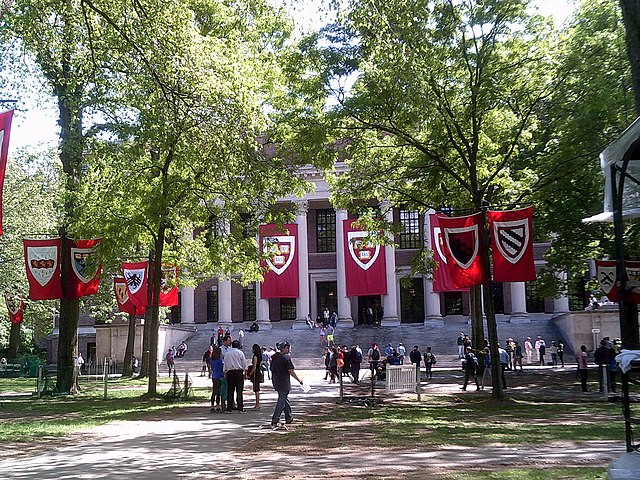A federal judge on Thursday blocked President Donald Trump's latest effort to bar international students from attending Harvard University, issuing a temporary restraining order after the Ivy League institution alleged the action was unlawful retaliation for refusing White House demands.
U.S. District Judge Allison Burroughs ruled that Harvard would "sustain immediate and irreparable injury before there is an opportunity to hear from all parties" if the order were allowed to stand. The ruling comes one day after Trump signed a two-page proclamation accusing Harvard of "concerning foreign ties and radicalism" and attempting to bar foreign students from entering the United States to attend the university.
"The Proclamation denies thousands of Harvard's students the right to come to this country to pursue their education and follow their dreams, and it denies Harvard the right to teach them," the school wrote in a filing Thursday. "Without its international students, Harvard is not Harvard."
The White House said the move was necessary to protect national security, with spokesperson Abigail Jackson calling Harvard "a hotbed of anti-American, antisemitic, pro-terrorist agitators." She added: "Harvard's behavior has jeopardized the integrity of the entire US student and exchange visitor visa system and risks compromising national security."
The administration had already attempted to revoke Harvard's foreign student certification in May, when Homeland Security Secretary Kristi Noem issued a directive stripping the university's right to host international students. That effort was halted by the same judge. In response, Harvard argued the administration was trying to circumvent court rulings by issuing the new proclamation.
"The President's actions thus are not undertaken to protect the 'interests of the United States,' but instead to pursue a government vendetta against Harvard," the university wrote.
More than 7,000 international students are currently enrolled at Harvard, representing approximately 25% of the student body. The university said many of those students are already preparing to arrive in the U.S. for the summer and fall terms, with visa approvals in hand.
The legal battle has left incoming students in limbo. "It is tiring, we all feel numb now," said Jing, a 23-year-old master's student from China, currently interning abroad. "Trump just makes big news headlines once every few days since he got back to the White House."
Yonas Nuguse, 21, from Ethiopia's war-torn Tigray region, said he endured years of hardship just to reach this point. "The war affected me a great deal and when I found out the news that I was accepted to Harvard, I was ecstatic," he said. "I hope the situation is temporary and I can enroll on time to go on and realize my dream far from reality in Ethiopia."
In a message to students and alumni, Harvard President Alan Garber emphasized the institution's global identity. "Each of us is part of a truly global university community," he stated. "We know that the benefits of bringing talented people together from around the world are unique and irreplaceable."
The Trump administration has also frozen billions in Harvard's federal funding and raised the prospect of revoking the school's tax-exempt status, as tensions over curriculum control and academic freedom have intensified. Secretary of State Marco Rubio recently pledged to "aggressively revoke" visas for Chinese students, further inflaming international concerns.






